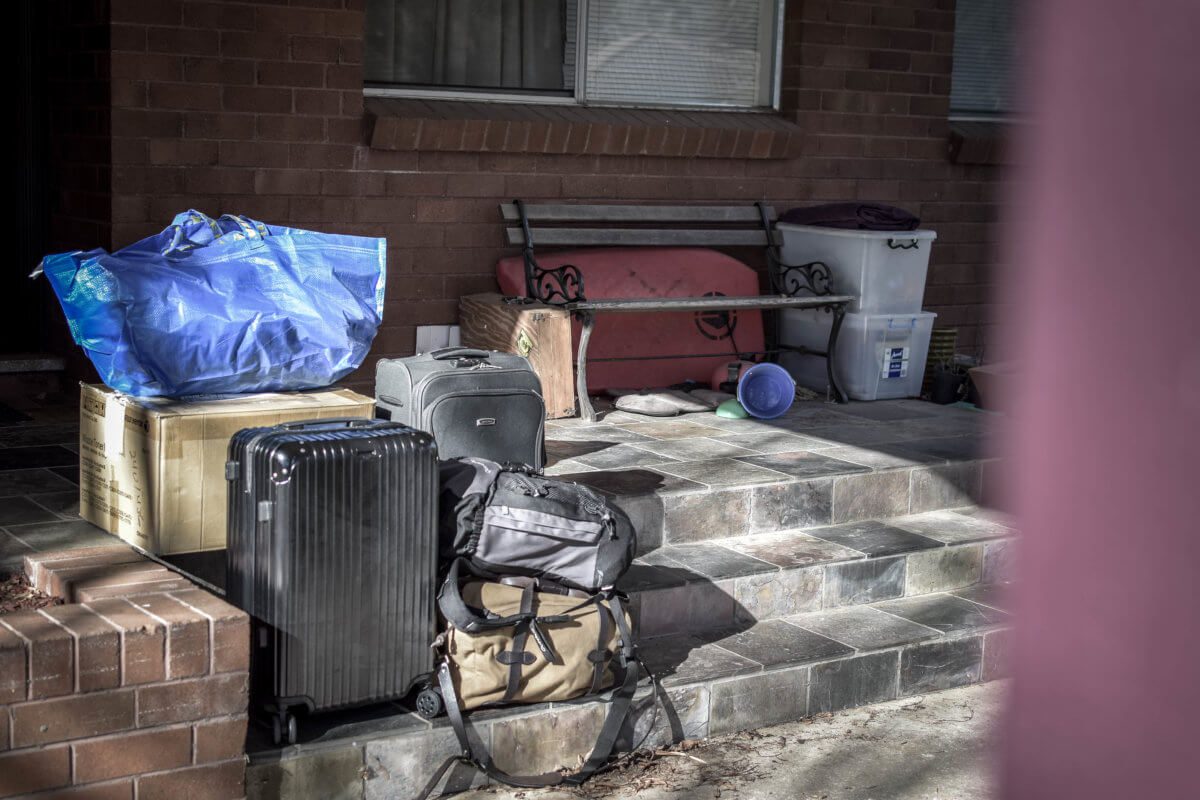M.S is one of many students at ANU who have been through homelessness. 9% of the ANU postgraduate student population are homeless or at risk of homelessness according to the PARSA survey released earlier this year.
Last month, ANU announced its commitment to offer postgraduate students a guarantee of accommodation in their first year of arrival from 2021 onwards. Despite the announcement, a group of postgraduate students slept by the Chancelry to protest student homelessness.
“I have been homeless myself and I have couch surfed. And I’ve grown up in Canberra … I get how stressful it is”, PARSA President Alyssa Shaw stated as she reflected on her own homelessness experience.
Homelessness is a growing problem in Australia and tertiary students in Canberra are particularly vulnerable due to the city’s competitive rental market and a number of other factors. Unlike first year undergraduates at ANU, postgraduates do not have an accommodation guarantee to secure on-campus accommodation in the first year until 2021. Due to lack of on-campus accommodation students have to search for off-campus properties through different formal and informal sources. “I applied for university accommodation on the first day the online applications opened and I was put on the waitlist for University House,” says Utsav Gupta, another international student who arrived in July. After being advised to look for off campus options, he did everything possible to find a home through the rental market. “I made 50 applications from India …before coming to Canberra. After coming here, I tried everything – Allhomes, Facebook groups, Gumtree, Flatmates. I lived at YHA for a month. Other temporary accommodation alternatives were unaffordable. As a student, living in the YHA shared room setup was hard…taking everything out of the suitcase and putting it back in everyday, irregular food and no privacy to study. I didn’t have my peace of mind”. He moved into University house recently after a month’s period of uncertainty.
PARSA’s survey of 733 postgraduate students, published in February this year, found that 57% of the students were homeless when they arrived in Canberra. 31% of the respondents found accommodation after a period of one to two months and 13% found accommodation after searching for more than two months.
”We know that there’s an issue with students arriving and they are essentially arriving in a state of crisis or homelessness. And so we have our emergency grants for the first few days… And we do have some ways of extending that if we need to, if people are finding it really hard. But generally what we need to do and our survey revealed this… It takes between one and two months usually to secure accommodation. So we have to solve for that gap… It’s largely the people who are arriving that have the issue. But it’s also students who have been here for a while and run into tenancy trouble”, says Shaw.
In the past, students have also fallen prey to rental scams and fake listings. In February this year, a group of postgraduate students were swindled out of $5000 for a property that didn’t exist. Though international students are particularly vulnerable to homelessness, domestic students too face similar struggles. Domestic students who are new to Canberra lack local rental history and recommendations that can help them secure off-campus accommodation.
Canberra is one of the most expensive places to rent in the country. Weekly asking rents in the city have surged in the past few months. Additionally, suburbs that are close to the university campus are expensive to rent as compared to those that are farther. Many students prefer staying close to campus and high rents of such properties limit the options available to students. Apart from high rents, rental bidding, i.e. making offers above the advertised price to sway the landlord’s choice, is common in the tight rental market.
Properties are in high demand when students arrive and obtaining a lease for a property through the market is a formidable challenge for most students who lack stable jobs and incomes. Public servants or others with stable jobs are given preference over students. “It’s the structural barriers. And at the postgrad level almost 40% students are international, we’ve got a cohort of particularly vulnerable people who have no ideas about australian customs, the market or anything. They’ve never stepped foot often in Australia for the first time… and then they have to try and live while doing well on a full time academic course load and look for a job,” says Shaw.
Lack of information about the rental market and know-how about securing an accommodation aggravates the situation for some students. Short term leases for properties and relationship or family problems were other reasons of homelessness cited by students who responded to the survey.
Lack of on campus accommodation options, high rents of off-campus properties, a competitive rental market, lack of steady income and rental history and other factors compound students’ struggles with housing. Sleeping in the library, couchsurfing, living in a car, moving from one temporary accommodation to another is common amongst homeless students. “I’m just hoping about everything…If I find some place, okay. If I don’t find any place, I am ready to couch surf…I am open to that also” says M.S., who’s spent a month looking for accommodation and is still trying his best to find a secure home.
We acknowledge the Ngunnawal and Ngambri people, who are the Traditional Custodians of the land on which Woroni, Woroni Radio and Woroni TV are created, edited, published, printed and distributed. We pay our respects to Elders past and present. We acknowledge that the name Woroni was taken from the Wadi Wadi Nation without permission, and we are striving to do better for future reconciliation.
